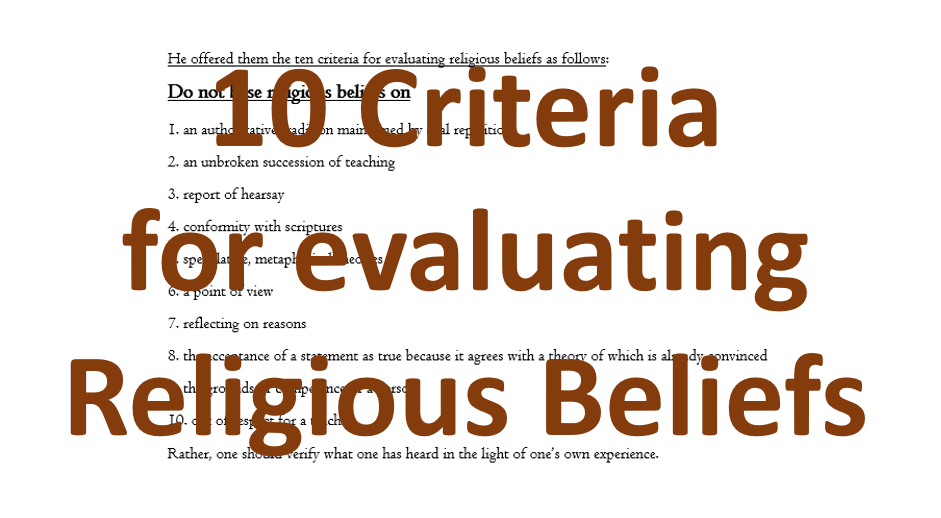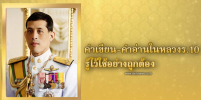Buddhism EP. 13 : The 10 Criteria for Religious Beliefs !?!
The Buddha offered the Kalamas the ten criteria for evaluating religious beliefs with the following words “Do not base religious beliefs on what you hear, please verify by your own experience. http://winne.ws/n25270
Let’s study together thru the conversation of the students who really need to know about “Buddhism”
Rob : Tim, the other day you talked about
the Kalamas. Who are they ?
Tim : Are you interested in them ?
Rob : Yes, I am.
Tim : They were wise men.
The commentary speaks of them
as belonging to the warrior caste
forming their clan in the Kesaputta
district in India. They were among
intelligent men – the Brahmins.
In India at that time, there were
a lot of doctrines and religions.
Rob : Even today we are able to find
a variety of religions in India.
Tim : That’s right. In the ancient times,
each religious teacher tried to
promote his own doctrines,
while refuting and denying the
validity of the doctrines of others.
Rob : What about the Buddha ?
Tim : He wasdifferent from the other
teacher. What the Buddha
stressed was the nature of reality,
or the Dhamma, not a view of it.
He never destroyed others.
But He frequently made criticisms
because He saw something
unwholesome in those teachings
which led those who practiced
them to suffering here, and
to birth in states of woeful
existence hereafter.
Rob : How did the Kalamas view the
Buddha’s teachings ?
Tim : Well, having heard about the
reputation of the Buddha when
He was visiting the district of
Kesaputta, the Kalamas went to
venerate the Buddha. They
questioned there being so many
different teachers who each
claimed that their doctrine was
true. How they could know who
was speaking the truth?
Rob : How did the Buddha respond ?
Tim : He offered them the ten criteria
for evaluating religious beliefs
as follows :
Do not base religious beliefs on
1. an authoritative tradition maintained by oral repetition
2. an unbroken succession of teaching
3. report of hearsay
4. conformity with scriptures
5. speculative, metaphysical theories
6. a point of view
7. reflecting on reasons
8. the acceptance of a statement as true because it agrees with a theory of which is already convinced
9. the grounds of competence of a person
10. out of respect for a teacher.
Rather, one should verify what
one has heard in the light of one’s
own experience.
Rob : What a wonderful method of
teaching this is !
Tim : One should realize that the Buddha
was in no way interested in making
philosophical statements, nor in
stating dogmas for people to
believe. In the Dhamma, method
is conjoined with practice.
Thanks & regards: AJ S. Srisopa (Cr. All Dhamma teachers)












